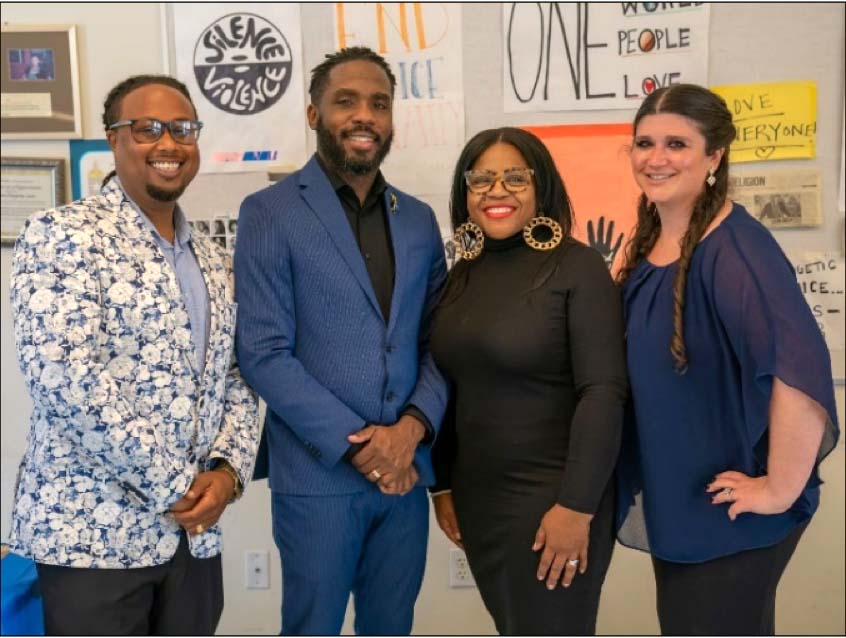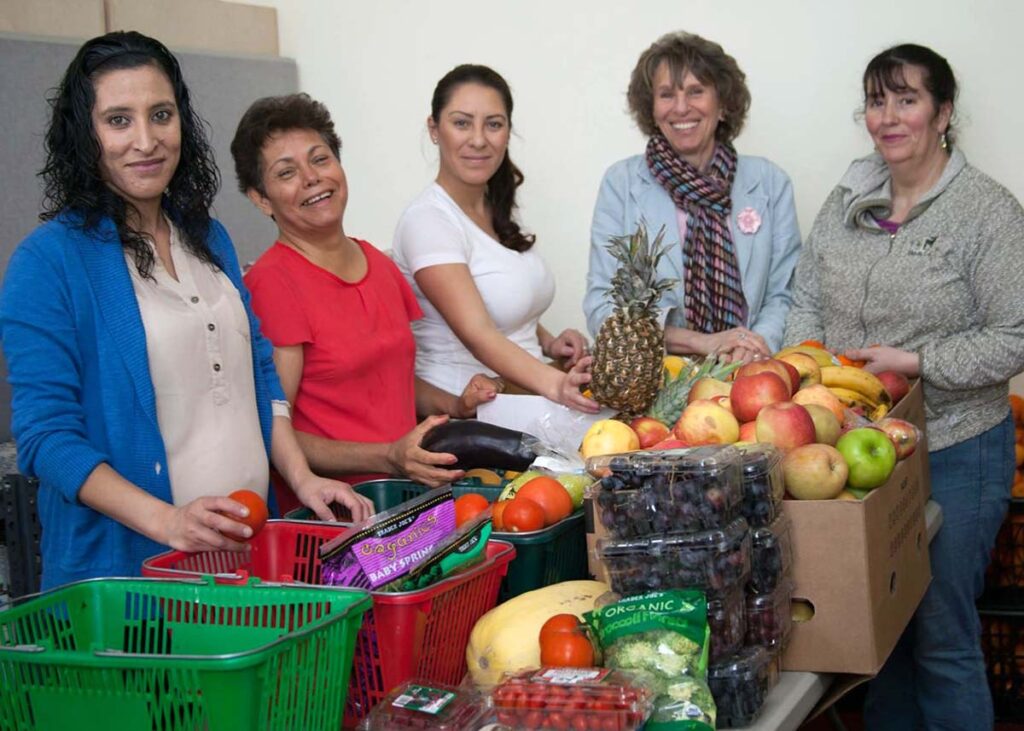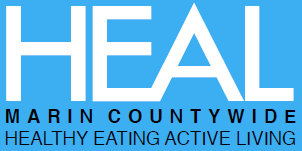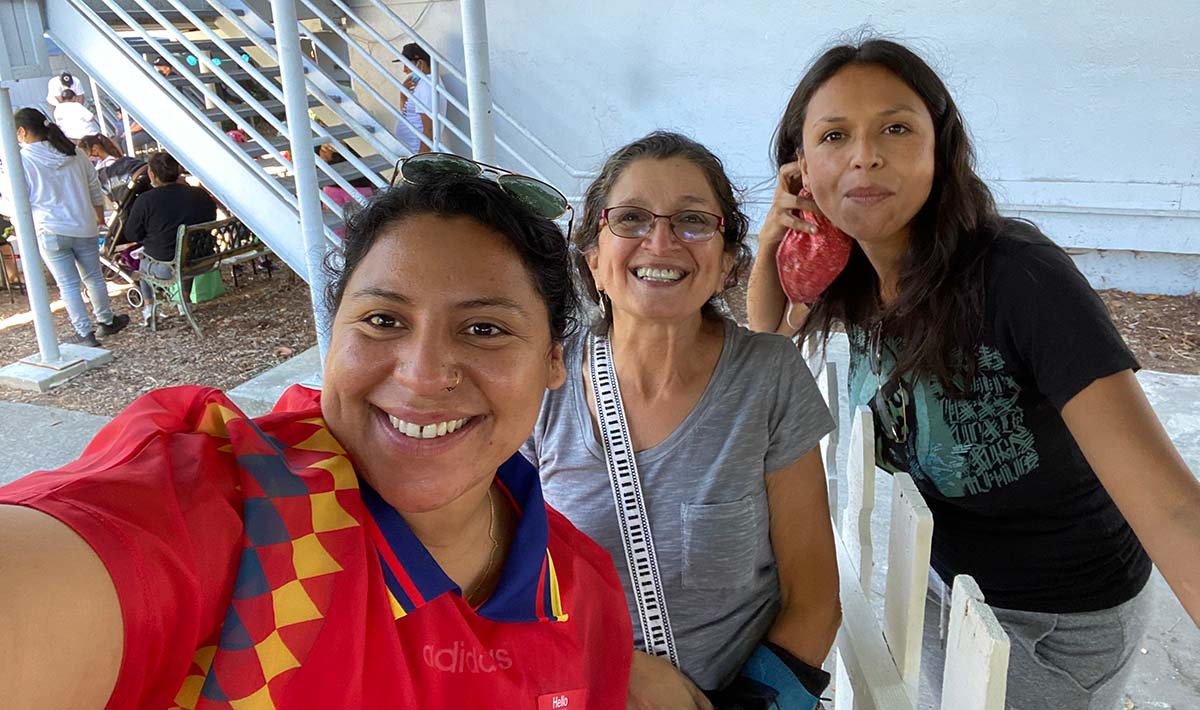We have shifted our structure to ensure that the work is being driven by processes that support community empowerment within a local and equitable food system. The Community Action Teams are designed to create a space that can co-create solutions with community leadership and provide processes to amplify community voice. Over the next few months, each CAT will be refining potential action items and engaging residents to better understand needs, assets, and barriers for making community change.
The Canal Community Action Team: Alcohol Justice
The opportunity to address food from a social justice lens inspired Maite Duran, the Canal Community Action Team co-lead from Alcohol Justice, to join the HEAL Collaborative. Maite believes that access to healthy food should be a human right, as it is the basis for a dignified life. Maite is excited to collaborate with the Community Action Teams from both West Marin and Marin City, to ultimately create a streamlined voice as they put forth viable solutions for the communities they serve.
Through the HEAL Collaborative, Maite hopes the Community Action Teams will work closely with one another; deepening their awareness and knowledge of neighboring communities. Maite recognizes that while each community faces unique struggles, there may be similar challenges that connect the communities, and hopes to strategize ways to deepen existing connections moving forward.
To learn more about the work of Alcohol Justice, contact Maite Duran maited@alcoholjustice.org.

Marin City Community Action Team: Marin County Cooperation Team (MCCT)
The Marin County Cooperation Team (MCCT) will lead a grassroots community engagement process to support community leadership and empowerment in selecting equitable food system priorities in Marin City. MCCT is excited for, “the opportunity to revitalize urban agriculture as a means for economic revitalization to create an economic revolution in Marin City.”
Envisioning a community owned and led process, MCCT plans to engage community stakeholders and community members to provide needed background information and share expertise on informed decision making when it comes to creating a community driven food system. Through a series of planned meetings and communications, the process will highlight healthy, affordable, and accessible food systems such as revitalizing community gardens, starting a local Farmer’s Market, creating a commercial kitchen to support local food businesses, and establishing a grocery co-operative.
Sustainable strategies that create linkages between planned and existing programs and community ownership will be integral to the process. Through this process MCCT hopes for the, “Continued collaboration for the betterment of Marin City.”
To learn more about the program contact Jahmeer Reynolds, Executive Director and Founder at jahmeerreynolds@marincountycooperationteam.org or Mira Karageorge Guidi, Director of Development & Operations at miraguidi@marincountycooperationteam.org

West Marin Community Action Team: West Marin Community Services
WMCS joined the HEAL collaborative to help ensure that West Marin anchor agencies and key community partners have stable and meaningful access to essential resources and services that are conveyed through the countywide, HEAL collaborative. During the pandemic, trusted leaders, and liaisons from each geographic area of West Marin worked through the unprecedented period to network and develop stable access to food and essential services. To create a coordinated response and ensure parity and equitable access for all hard-to-reach individuals and locations, WMCS connected with schools, community partners, business districts, faith based, and community-based organizations. Through increased collaboration and ongoing connection, the HEAL collaborative helped the anchor agencies of each geographic hub to receive support from county staff and experts available to listen, contribute and support communities.
To learn more about the work of WMCS, contact Socorro Romo at sromo@westmarincommunityservices.org.

